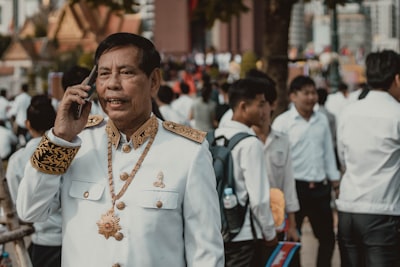Summary
A leaked 17-minute phone call between Thai Prime Minister Paetongtarn Shinawatra and former Cambodian Prime Minister Hun Sen has led to Paetongtarn's suspension from office. The conversation, which was shared by Hun Sen via his official Facebook account, centers on easing border tensions between Thailand and Cambodia. Both leaders speak candidly about their desire for peace, the conditions for reopening the border, and the influence of domestic stakeholders. The leak of this call, intended as a confidential diplomatic engagement, has resulted in judicial intervention in Thai politics.
Analysis
This incident illuminates several key factors:
Diplomatic Vulnerability: The exposure of private communications risks undermining sensitive negotiations, casting doubt on leaders' ability to maintain confidentiality and trust. Paetongtarn’s suspension highlights how quickly political careers can be jeopardized by breaches of privacy, intentional or accidental.
Political Undercurrents: The call reveals underlying frictions—not only between the two countries but within Thai political circles themselves. Paetongtarn's reference to listening to the "opposite side" and internal military actors points to fractured authority and a lack of unified national policy, which adversaries or rival power blocs may exploit.
Framing and Perception: Hun Sen’s public release of the audio and his framing of the conversation as a matter of straightforward Cambodian demands suggest deliberate shaping of the narrative to favor Cambodia’s position internationally and domestically.
Precedent and Consequences: The suspension sets a troubling precedent: political leaders may now be more reluctant to engage in frank diplomatic dialogue for fear of surveillance, leaks, or political weaponization of their words. The risk is further erosion of trust in diplomacy and increased volatility in regional relations.
Discussion
This episode is a microcosm of the broader challenges facing diplomacy in a digital, hyper-connected era:
Confidentiality versus Transparency: While transparency is generally positive, diplomacy requires a realm for candid, private problem-solving. When such spaces are violated, as in this case, the outcome can be counterproductive, fostering mistrust rather than the intended accountability.
Weaponization of Leaks: Like so many recent global incidents (think Wikileaks, the Ukraine diplomatic calls, etc.), this leak is weaponized—used not just to inform the public but to disrupt political stability and direction. What does this mean for the future of international cooperation?
Implications for Democracy: The judicial suspension of an elected leader over a communication meant to promote peace raises questions about the politicization of legal processes. At what point does safeguarding national security or interests encroach upon democratic function and accountability?
Critical Questions:
- Will leaders increasingly resort to informal or encrypted channels, and what new risks might that introduce?
- How does such a diplomatic incident reframe public trust and foreign policy within Thailand and the ASEAN region?
- Is it fair (or safe) to hold a leader solely accountable for a conversation motivated by national interest, especially when context is missing or the intent is constructive?
Final Thoughts: In an era when every private utterance can become public ammunition, the space for effective diplomacy shrinks. The Paetongtarn leak is a warning: political, technological, and societal systems must adapt to protect legitimate dialogue, lest we lose the human elements at the heart of peace-building itself.

Comments
No comments yet. Be the first to comment!